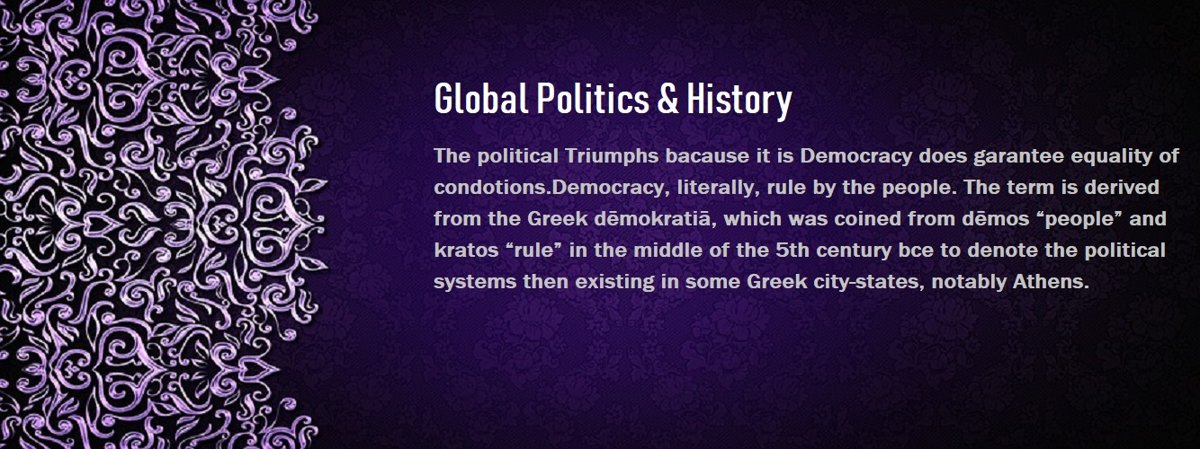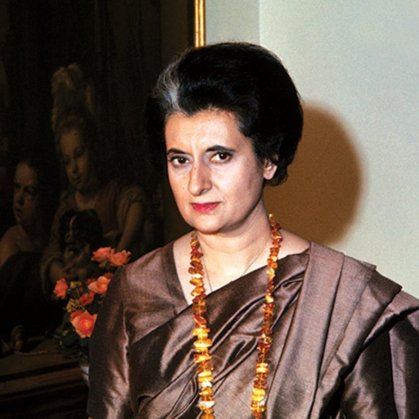INDIRA GANDHI (1917 - 1984 ),THE ONLY AND FIRST FEMALE PRIME MINISTER OF INDIA FOR 16 YEAR .SHE WAS THE DAUGHTER OF INDIA FIRST PRIME MINISTER JAWAHARLAL NEHRU.INDIRA GANDHI KNOWN A " IRON LADY",SHE WAS BRUTALLY ASSASSINATED BY HER BODYGUARDS ON 31 OCTOBER 1984.
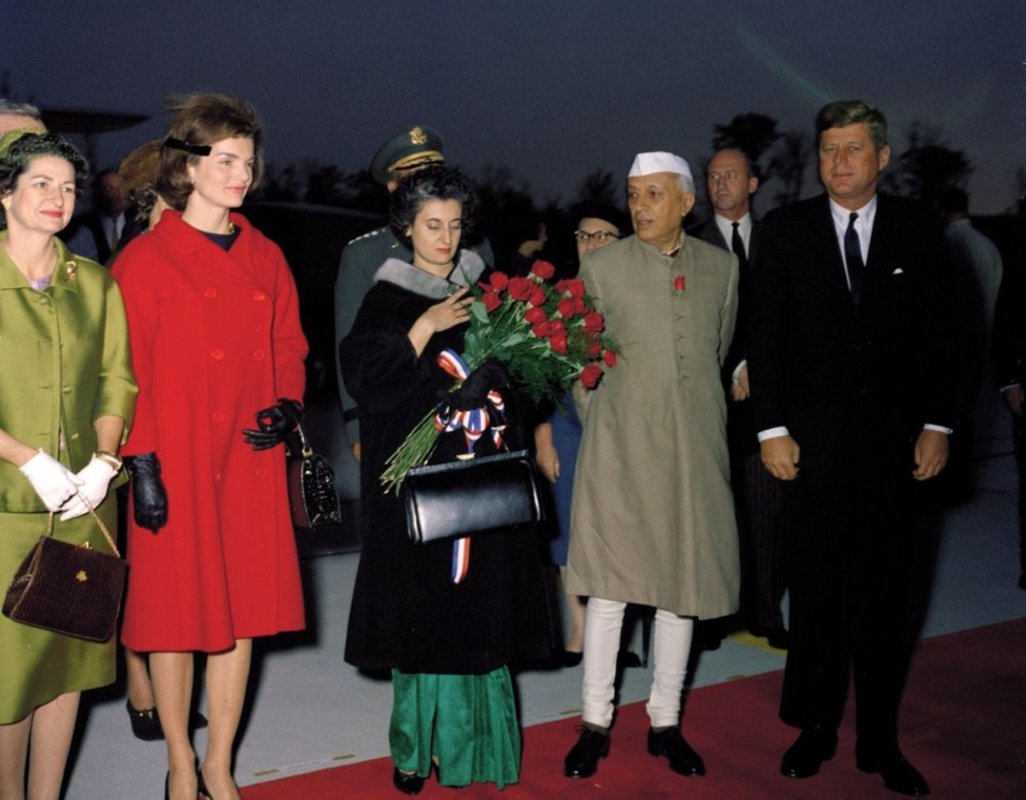 Indira Gandhi and her father India first Prime Minister Jawaharlal Nehru’s last visit to the US (1961) proved disappointing, despite then US President John F Kennedy holding him in high esteem. As a senator, Kennedy had been a supporter of more aid to India.In November 1961, Time magazine reported Nehru’s schedule in the US was so crowded that it “barely left him time to change the perennial red rose on his achkan tunic”.
Indira Gandhi and her father India first Prime Minister Jawaharlal Nehru’s last visit to the US (1961) proved disappointing, despite then US President John F Kennedy holding him in high esteem. As a senator, Kennedy had been a supporter of more aid to India.In November 1961, Time magazine reported Nehru’s schedule in the US was so crowded that it “barely left him time to change the perennial red rose on his achkan tunic”.
Indira Priyadarshini Gandhi (1917-1984), was a prime minister of India,the only and first female Prime Minister of India for 16 years (1966-77 and 1980-84)and she was the most effective and powerful politician of her day in that country.She was the daughter of India first Prime Minister Jawaharlal Nehru.She was the only child of India's first Prime Minister, Jawaharlal Nehru.She was educated in Swiss schools and at Somerville college, Oxford.She is the second longest serving PM of India, after her father.Indira Gandhi was born in the northern Indian city of Allahabad on November 19, 1917. She was the only child of Jawaharlal Nehru, a dominant figure in the nationalist movement and India's first prime minister. This association placed her at the center of India's struggle for freedom. After independence in 1947, she served as her father's hostess and confidante until his death. Throughout the period of her political association with her father, one of Gandhi's primary interests was social welfare work, particularly children's welfare.Indira Gandhi attended Santiniketan University and Somerville College, Oxford University, in England. She married Feroze Gandhi (no relation to Mahatma Gandhi) in March 1942. Shortly thereafter they were both imprisoned for a period of 13 months for their part in the nationalist political agitation against British rule. Feroze Gandhi was a lawyer and newspaper executive and became an independent member of Parliament. He died in 1960. They had two sons, Rajiv and Sanjay.Gandhi became president of the Indian National Congress in 1959. The Congress had led the country to freedom and had then become its major political party. She had joined the Congress in 1938 and subsequently served as a member of its Youth Advisory Board and chairman of its Woman's Department. Prior to assuming the presidency of the organization, Gandhi was named to its 21-member executive Working Committee and was elected with more votes than any other candidate to the powerful 11-member Central Election Board, which named candidates and planned electoral strategy.In June 1964, following her father's death, Gandhi became minister for information and broadcasting in the Cabinet of Lal Bahadur Shastri and instituted an Indian television system. In January 1966, when Shastri died, she was elected leader of the Congress party in Parliament and became the third prime minister of independent India. She assumed office at a critical time in the history of the country. A truce had ended the 1965 war between India and Pakistan only a week before. The nation was in the midst of a two-year drought resulting in severe food shortages and a deepening economic crisis with rising prices and rising unemployment. The political repercussions of these difficulties were profound. In the fourth general elections of 1967 the Congress retained majority control (and reelected Gandhi as its leader) but lost control in half the state legislatures. After 20 years of political dominance, the Congress party experienced serious difficulty.Gandhi immediately set about reorganizing the party to make it a more effective instrument of administration and national development. Her goal was to achieve a wider measure of social and economic justice for all Indians. As her left-of-center policies became clear, the Congress party split, with the younger, more liberal elements coalescing around Gandhi and the older, more conservative party leaders opposing her. This division came to a head in July 1969 when she nationalized the country's 14 leading banks in a highly popular move meant to make credit more available to agriculture and to small industry.The split was formalized when Gandhi's candidate for the presidency of India, V.V. Giri, won over the party's official nominee. Although Gandhi took 228 members of Parliament with her into the New Congress, this was not a majority in the 521-member house, and she held power only with support from parties of the left. In December 1970 when Gandhi failed to get the necessary support to abolish the privy purses and privileges of the former princes, she called on the President to dissolve Parliament. Midterm elections were set for March 1971, one full year ahead of schedule.A coalition of three parties of the right and an anti-Congress socialist party opposed Gandhi, who made alliances with parties of the left and some regional parties. Her platform was essentially one of achieving social and economic change more rapidly in an effort to improve the quality of life of India's people. Her party won a massive victory with over a two-thirds majority in Parliament.Gandhi faced major problems in the areas of food production, population control, land reform, regulation of prices, unemployment, and industrial production. The problems were exacerbated by the influx of almost 10 million refugees as a result of the civil turmoil in East Pakistan. In November 1971 Indian troops crossed into East Pakistan to fight Pakistani forces. On December 6 Gandhi announced diplomatic recognition of the Bangla Desh government set up by East Pakistani rebel leaders. Ten days later Pakistan's commander in East Pakistan surrendered to India.n the state elections held in India in March 1972, Gandhi's New Congress party scored the most overwhelming victory in the history of independent India; however, her opponent accused her of violating election laws, and a high court upheld the charge in 1975. Because of this development, as well as domestic unrest, Gandhi declared a state of emergency and postponed elections. In the 1977 elections Gandhi and her party suffered major defeats; Gandhi lost her seat and the premiership.The following year she headed the Congress party faction as she returned to Parliament. In 1979 she again became Prime Minister. In efforts to prove India's nonalliance in the global community, she visited both the United States and the USSR. Internally, riots broke out among Muslim, Hindu, and Sikh religious sects. Sikh separatists secured weapons within their sacred Golden Temple in Amritsar, assuming religious protection.
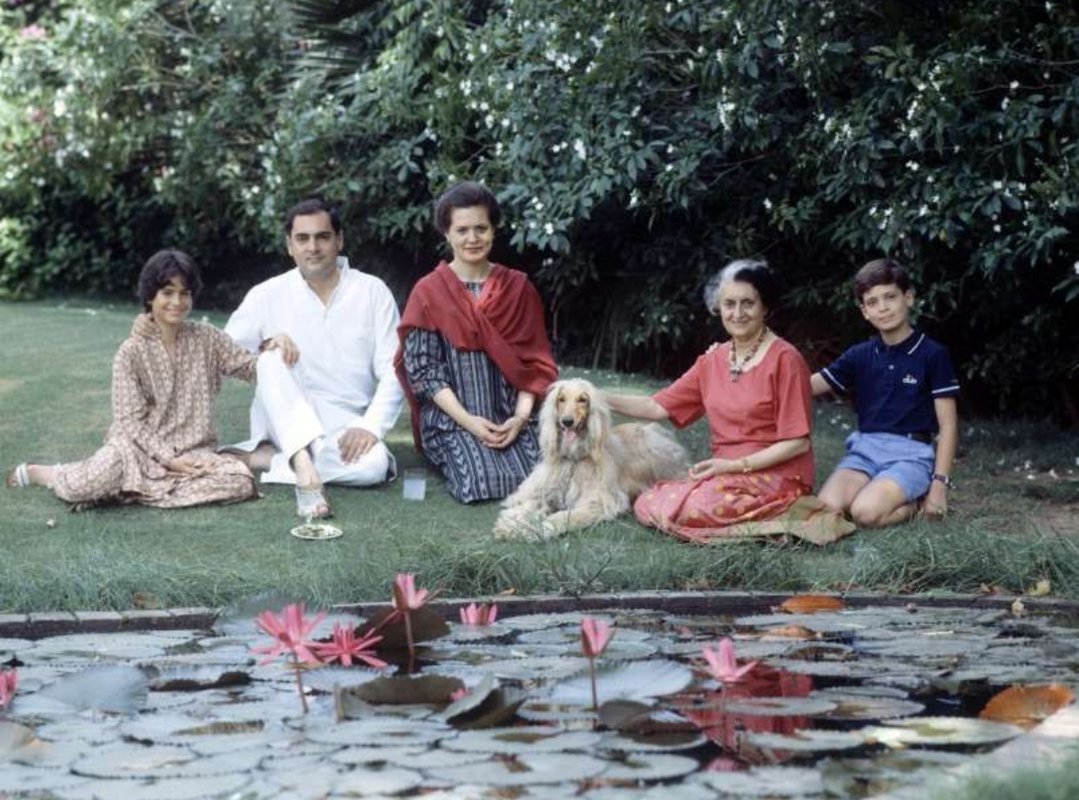 Indira Gandhi In June 1964, following her father's death, Gandhi became minister for information and broadcasting (1904–1966),Later he became India's first prime minister. Because of many of his political beliefs, Jawaharlal, along with much of his family, was often jailed (1869–1948) nationalist movement.Indira Gandhi with her son Rajiv, daughter-in-law Sonia, grand-children Priyanka 11 yrs old, and Rahul 13 yrs old and her Afghan dog Pippa.
Indira Gandhi In June 1964, following her father's death, Gandhi became minister for information and broadcasting (1904–1966),Later he became India's first prime minister. Because of many of his political beliefs, Jawaharlal, along with much of his family, was often jailed (1869–1948) nationalist movement.Indira Gandhi with her son Rajiv, daughter-in-law Sonia, grand-children Priyanka 11 yrs old, and Rahul 13 yrs old and her Afghan dog Pippa.
Nehru had never wanted to create a family dynasty.Her father participated in a number of movements at that time and revolutionary nature comes in her blood while seeing this at home. Once she burnt her favorite doll when she came to know that the dolls were made in England and the same Britishers ruling our country. She was just 5 years old during this incident.Indira Gandhi took multiple steps during her tenure as Prime Minister of the nation to decrease the birth rate in the country. She wanted India to grow, develop and prosper like other developed nations of the world and this was only possible with the limited population. She was gained huge popularity at that time for this step. She gave targets for sterilization to its concerned officials.Indira Gandhi had the close friendship with former British Prime Minister and another Iron lady of her nation Margaret Thatcher. She was so much attached to Indira Gandhi that she sent a heart touching letter to his son Rajiv Gandhi after her assassination. She mentioned that she was very shocked and sad with this incident and felt like she lost one of her family members. Indira Gandhi was not only known as the great statesman but also as the caring and warm lady.During the 1951-52 Parliamentary Elections, Indira Gandhi handled the campaigns of her husband, Feroze, who was contesting from Rae Bareli, Uttar Pradesh. After being elected an MP, Feroze opted to live in a separate house in Delhi.Feroze soon became a prominent force against the corruption in the Nehru led government. He exposed a major scandal involving prominent insurance companies and the Finance Minister T.T. Krishnamachari. The Finance Minister was considered to be a close aide of Prime Minister Jawaharlal Nehru. Feroze had emerged as a noted figure in the country's political circle. He, with a small coterie of supporters and advisors continued to challenge the Central government. On 8 September 1960, Feroze died after a major cardiac arrest. Indira's start was shaky and insecure. In the fourth general election in February 1967, the Congress majority was greatly reduced when it secured only 54 percent of the parliamentary seats, and non-Congress ministries were established in Bihar, Kerala, Orissa, Madras, Punjab, and West Bengal. A Congress-led coalition government collapsed in Uttar Pradesh, while Rajasthan was brought under President's Rule direct central government ruleIndira Gandhi grabbed so much power herself and her central government that the role of state governments and private enterprises was greatly reduced. Her government strictly regulated everything from birth control to the manufacture of automobiles. She was the first world leader to introduce equal wage legislation but the law did little to help improve the lives of working and non-working women.Gandhi campaigned fiercely on the platform "eliminate poverty" (garibi hatao ) during the fifth general election in March 1971, and the Congress gained a large majority in Parliament against her former party leaders whose slogan was "eliminate Indira" . After India's decisive victory over Pakistan in the third war over Kashmir in December 1971, Indira firmly established herself at the pinnacle of power, overcoming challenges from the Congress , the Supreme Court, and the state chief ministers in the early 1970s. The more solidified her monopoly of power became, the more egregious was her intolerance of criticisms, even when they were deserved. As head of her party and the government, Gandhi nominated and removed the chief ministers at will and frequently reshuffled the portfolios of her own cabinet members. Ignoring their obligations to their constituencies, party members competed with each other in parading their loyalty to Gandhi, whose personal approval alone seemed crucial to their survival Indira went against her parents wishes and married a Parsi named Feroze Gandhi even though her father told her he was "pained and surprised" by "the casual way" in which she discarded "precious traditions and heritages."Feroze was a lawyer and the son of a shopkeeper. He initially lifted her spirit and made her feel beautiful. He and Indira had two children: Sanjay and Rajiv.Indira's youngest and favorite son Sanjay was groomed to be Indira's successor despite a reckless streak. While Indira was in office he often acted as Indira's political enforcer. Indira spoiled Sanjay and he played a part in her unpopularity . He died on June 23, 1980 after failing to come out a dive during a stunt plane maneuver. After Sanjay died, the position of Indira’s older son Rajiv and his Italian wife Sonia rose.Maneka Gandhi, widow of Indira's son Sanjay, often defied her mother-in-law Indira. Maneka was became widow at 23 with a three-month old son when Sanjay died.
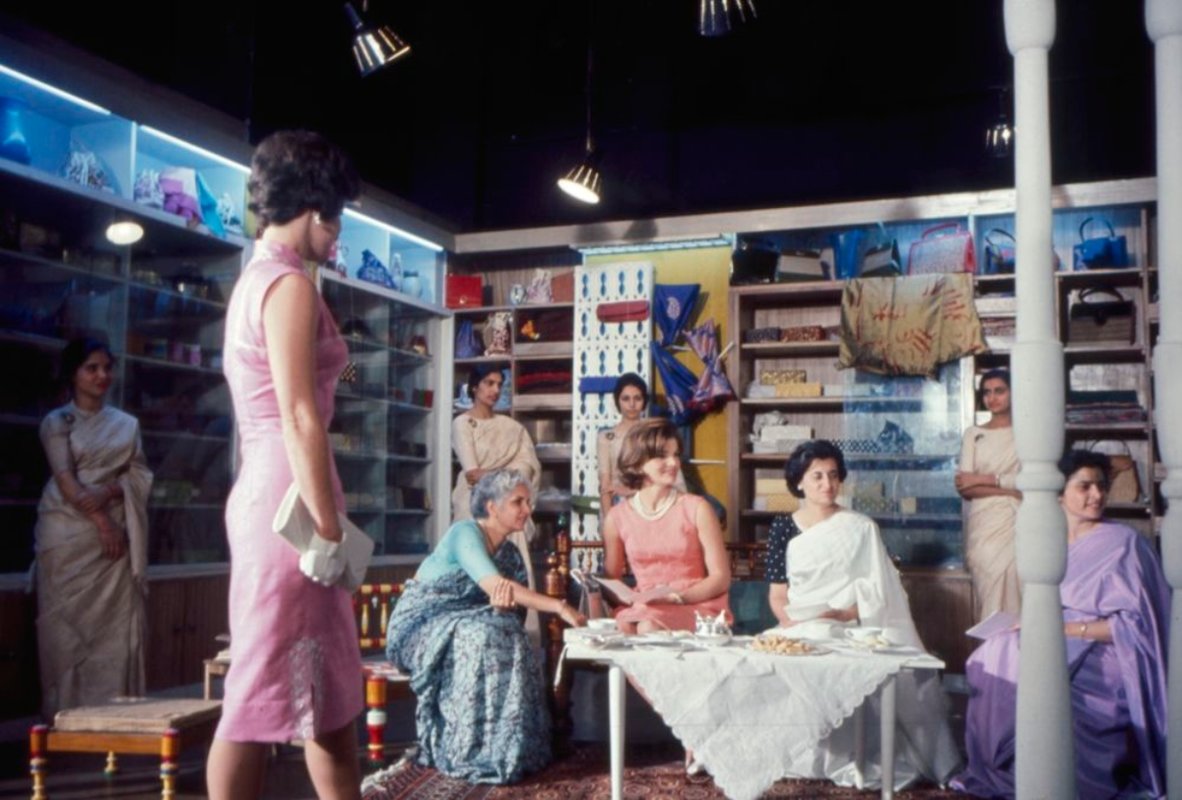 Jacqueline Kennedy and Indira Gandhi In March 1962, First Lady Jacqueline Kennedy visited India. Here she is with Indira Gandhi in New Delhi, India.While in India the stylish First Lady also had an effect on the "traditionally dowdy female press corps.For her part, meanwhile, it was clear that Mrs. Kennedy took something of India with her when she left."It's been a dream," Jackie said of her trip.
Jacqueline Kennedy and Indira Gandhi In March 1962, First Lady Jacqueline Kennedy visited India. Here she is with Indira Gandhi in New Delhi, India.While in India the stylish First Lady also had an effect on the "traditionally dowdy female press corps.For her part, meanwhile, it was clear that Mrs. Kennedy took something of India with her when she left."It's been a dream," Jackie said of her trip.
Indo-Pakistan war in 1971,Indo-Pakistan war was the direct after-effect of the Bangladesh Liberation War in East Pakistan, which was brought by the Awami League led by Mujibar Rahman against the military brutality launched by the Pakistan President Yahya Khan. The military specifically targeted the Hindu minority population and committed atrocious acts of torture throughout the country. As a result, about 10 million East Pakistani citizens fled the country and sought refuge in India. The overwhelming refugee situation prompted Indira Gandhi to support Awami League’s struggle for freedom against West Pakistan. India provided logistical support and also sent troops to fight against West Pakistan. The war concluded on 16 December 1971 in Dhaka, after the Eastern Command of the Pakistani Armed Forces signed the Instrument of Surrender and that marked the birth of the new nation of Bangladesh. India's triumph in the war of 1971 against Pakistan enhanced the popularity of Indira Gandhi as a shrewd political leader.In 1975, the Opposition parties and social activists staged regular demonstrations against the Indira Gandhi-led Central government over rising inflation, the poor state of economy and unchecked corruption. The same year, Allahabad High Court ruled that Indira Gandhi had used illegal practices during the last election and this added fuel to the existing political fire. The verdict ordered her to vacate her seat, immediately. The agitation and anger of the people intensified. Mrs. Gandhi instead of resigning declared "an emergency, due to the turbulent political situation in the country" on 26 June, 1975.Indira Gandhi was prime minster when India exploded its first nuclear device in an underground tests on May 18, 1974 in the Thar desert of Rajasthan. After India's decisive victory over Pakistan in the third war over Kashmir in December 1971 she was at the pinnacle of her power.Indira Gandhi was an isolationist. She boldly established a relationship with the Soviet Union, much to the chagrin of the U.S. In August 1971, Gandhi signed the twenty-year Treaty of Peace, Friendship, and Cooperation with the Soviet Union because ties with the United States, which had improved in Nehru's later years, had eroded.A civil war stirred up by India in 1971 created the nation of Bangladesh out of East Pakistan. Over one million died in the war and 10 million hungry refugees fled to India, mostly to Calcutta, West Bengal, Assam and other places in eastern India.. Most of the dead were killed by the West Pakistan army.The division of Pakistan made India the unquestioned superpower of the subcontinent. India's victory over Pakistan in 1971 and Gandhi's insistence that the millions of refugees from Bangladesh be sent back to their country generated a national surge in her popularity, later confirmed by her party's gains in state elections in 1972.Neither Gandhi's consolidation of power, nor her imperious style of administration, nor even her rhetoric of radical reforms was enough to meet the deepening economic crisis spawned by the enormous cost of the 1971 war. A huge additional outlay was needed to manage the refugees, the crop failures in 1972 and 1973, the skyrocketing world oil prices in 1973-74, and the overall drop in industrial output despite a surplus of scientifically and technically trained personnel. No immediate sign of economic recovery or equity was visible despite a loan obtained from the International Monetary Fund (IMF) in 1974. Both Gandhi's office and character came under severe tests, beginning with railroad employee strikes, national civil disobedience advocated by J.P. Narayan, defeat of her party in Gujarat by a coalition of parties calling itself the Janata Morcha , an all-party, no-confidence motion in Parliament, and, finally, a writ issued by the Allahabad High Court invalidating her 1971 election and making her ineligible to occupy her seat for six years.Policies that were intended to reduce social and economic disparities created special interest. States subsides that were supposed to benefit the poor were used instead by bureaucrats, land owners and industrialists to keep a reliable flow of profits coming in. India's cycle of corruption began in 1971 when Indira Gandhi launched an expensive Western style political campaign that needed millions of dollars to finance. Businessmen and special interests groups recruited by her fundraisers were willing to give her the money she needed to run he political machine in return for favors.
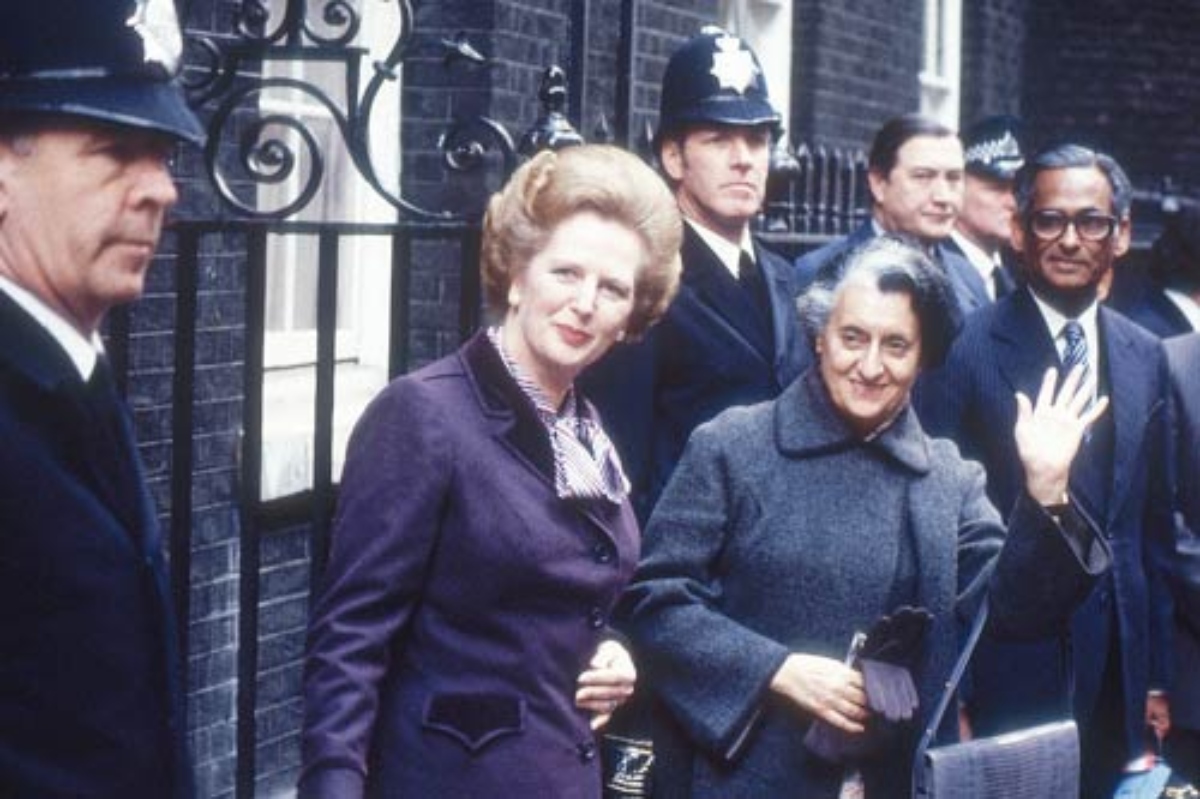 There was very little in similarity between the two, other than the fact that they were both made of the same cloth when it comes to politics.They both empathized with each other as the only two women as major heads of states.Indira Gandhi was an authoritarian who tried to subvert the system and suspended the constitution to stay in power. Margaret Thatcher was elected thrice by popular vote. Mrs Thatcher, who described the former Indian Prime Minister as a "member of my own family", flew down to New Delhi to attend her funeral on November 3 that year against the backdrop of at least two documented threats to her life.
There was very little in similarity between the two, other than the fact that they were both made of the same cloth when it comes to politics.They both empathized with each other as the only two women as major heads of states.Indira Gandhi was an authoritarian who tried to subvert the system and suspended the constitution to stay in power. Margaret Thatcher was elected thrice by popular vote. Mrs Thatcher, who described the former Indian Prime Minister as a "member of my own family", flew down to New Delhi to attend her funeral on November 3 that year against the backdrop of at least two documented threats to her life.
Assassination of Indira Gandhi,on November 12, 1984, five months after the raid on the Golden Temple and shortly after predicting her own death, Indira Gandhi was assassinated by two of her trusted Sikh bodyguards at her home shortly before she was supposed to be interviewed by Peter Ustinov, who later said, "We were in the garden at 8:30 ,the mike was in place and we were all ready. I told the press secretary we were ready and he went to fetch her." The bodyguards apparently committed the murder in revenge for the assault on the Golden Temple. They were reportedly given a "black warrant," or execution order, by Sikh militant leaders.At 9:08 in the morning, as she was walking to the interview, Beant Singh, a Sikh police subinspector, drew his revolver and fired three times. Satwatwant Singh, the constable at the gate to her house, opened fire with a machine gun and pumped 30 bullets in her crumpled body. Beant Singh raised his hands and said, "I have done what I have to do. Now do what you have to do." He was shot dead. His accomplice was later tried and hanged. Mrs. Gandhi was driven in a white Ambassador to the All India Institute of Medical Sciences where she was pronounced dead on arrival. She had been hit by at least 20 bullets.A group of extremists in Punjab demanded a separate nation of Khalistan for the Sikhs, In 1966 a separate state for the Sikhs was formed although close to 50% of the population was not sikhs. In 1984 Sant Jarnail Singh Bhindranwale along with hundreds of his followers started living in the sacred site, ( The Golden Temple) while the Akali Dal went on a rampage outside. Indira Gandhi as Known for her Daring attitude wanted to end the aggression of Bhindranwale and his followers, (one of them being an ex Major General Shabeg Singh) on june 1st 1984, under the guidance of the then Army General Arun Shridhar Vaidya, and leadership of Lt. Gen. Kuldip Singh Brar wid the orders of Indira Gandhi, Operation Bluestar was carried out to shun the militants out of the sacred site. With tanks and bazookas, heavy artillery, helicopters, armored vehicles, and chemical weapons inside the temple, the army cleared the site by the afternoon of June 10th, 1984, the army suffered a total of 136 casualties, while around 140-200 militants were killed. Also as many as 500 civilians were killed, while there were reports that claimed a civilian toll of around 5000.Operation Blue Star is often compared to ‘the great massacre’ by the Afghan invader Ahmad Shah Durrnai, 1762. It was criticized for its no holds barred approach. The Operation could have been avoided using blockade tactics, which was later adopted by Rajiv Gandhi in Operation Black Thunder.Indira Gandhi was murdered by her Sikh Bodyguards,Satwant Singhand Beant Singh on 31 October 1984. Beant Singh shot her three times using his side-arm, and Satwant Singh fired 30 rounds, Beant Singh was later shot dead in a closed room while Kehar Singh was later arrested for conspiracy in the attack. Both Satwant and Kehar were sentenced to death and hanged in Delhi's Tihar Jail. Later even the the Army General Arun Vaidya was assassinated on 10th Aug 1986, while recently Lt.Gen K.S. Brar was attacked in london with a Knife in 2012. (Sikh extremist jailed over knife attack on Indian general in London.Riots after Indira Gandhi's assassination,Thousands of Sikhs were killed in riots that followed the assassination. The news of Indira Gandhi's assassination plunged New Delhi and other parts of India into anti-Sikh riots for several days; several thousand Sikhs were killed. After Gandhi's son, Rajiv Gandhi, was sworn in as prime minister he called for "maximum restraint" but his statement "When a giant tree falls, the earth shakes" was seen by some as tacit authorization the anti-Sikh violence. On the night after Gandhi's assassination, the streets were quiet but the next night Hindu mobs rampaged through Sikh neighborhoods, chanting "blood for blood." Sikhs were pulled off buses and trains and butchered and set on fire with tires over their heads. Black smoke hung in the air from all the Sikh trucks, taxis and temples set on fire.
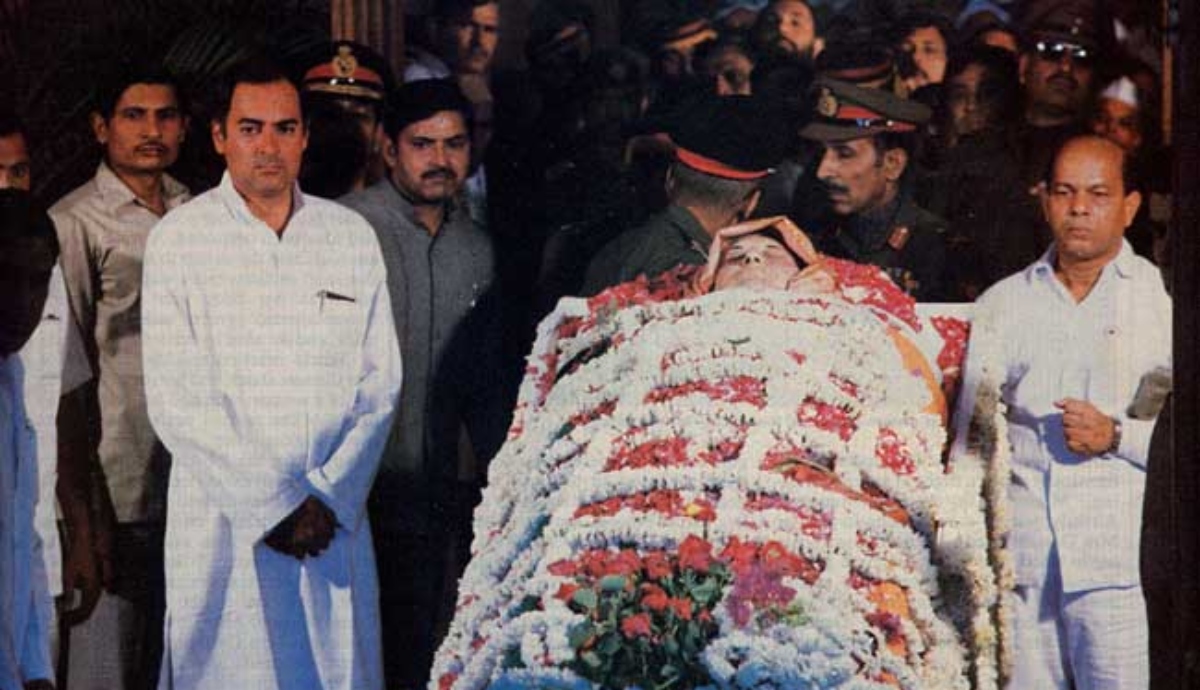 The facts of assassination of Indira Gandhi,as India became independent, major religion of India had started demanding for separate democracy and separate land on the basis of linguistic, religion and so on. Having being observing the concerns arisen from Muslim community, our prominent leader had come to the solution and seprated some land from India that is known as Pakistan, specially for the Muslim community.On October, 31, 1984 Indira Gandhi was on her way to meet British actor Peter Ustinov, who was filming a documentary for Irish television. He was going to interview her. At around 9:10 am, Indira was walking through the garden of the Prime Minister’s Residence at No. 1, Safdarjung Road in New Delhi.Her trusted bodyguards, Beant Singh and Satwant Singh were waiting for her at the gate. As soon as she crossed the gate, her trusted guards open fired at her.
The facts of assassination of Indira Gandhi,as India became independent, major religion of India had started demanding for separate democracy and separate land on the basis of linguistic, religion and so on. Having being observing the concerns arisen from Muslim community, our prominent leader had come to the solution and seprated some land from India that is known as Pakistan, specially for the Muslim community.On October, 31, 1984 Indira Gandhi was on her way to meet British actor Peter Ustinov, who was filming a documentary for Irish television. He was going to interview her. At around 9:10 am, Indira was walking through the garden of the Prime Minister’s Residence at No. 1, Safdarjung Road in New Delhi.Her trusted bodyguards, Beant Singh and Satwant Singh were waiting for her at the gate. As soon as she crossed the gate, her trusted guards open fired at her.
